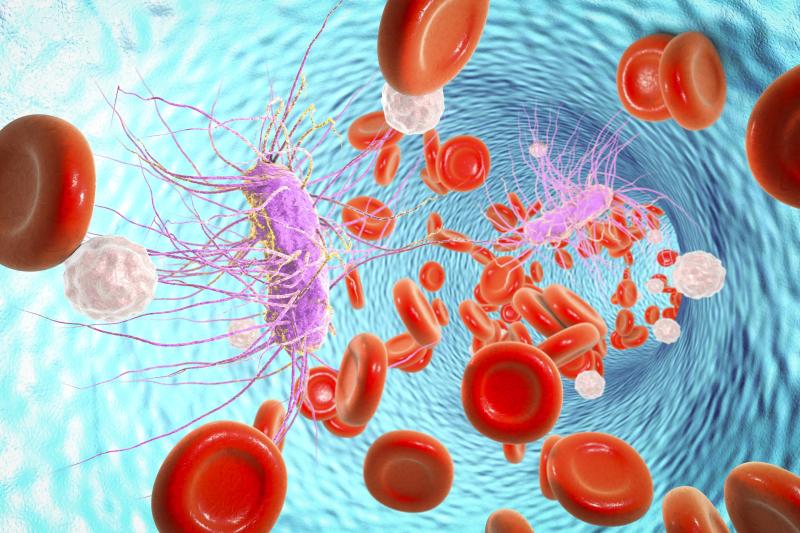
An antimicrobial stewardship approach of de-escalating from combination therapy with beta-lactam plus macrolide to beta-lactam monotherapy in the management of patients with severe community-acquired pneumonia (CAP) and a negative BioFire FilmArray Respiratory Panel 2 polymerase chain reaction (BioFire PCR) result is reasonable and does not lead to increased in-hospital mortality, according to a recent study.
Instead, de-escalation is associated with decreased length of stay (LOS) in the hospital and intensive care unit (ICU).
The study included 94 critically ill adults with CAP treated for ≥48 hours with combination beta-lactam and azithromycin therapy. Treatment was subsequently de-escalated to beta-lactam monotherapy in 53 patients and was retained in 41 patients.
In-hospital mortality did not significantly differ between the de-escalation and control group (2.4 percent vs 11.3 percent, respectively; p=0.312). However, patients in the de-escalated group had shorter ICU (1.9 vs 3.4 days; p=0.029) and hospital LOS (6 vs 7 days; p=0.025).
Likewise, there were no significant differences observed with respect to additional secondary endpoints, including duration of mechanical ventilatory support, 30-day readmission and incidence of azithromycin-related adverse effects.
Simple logistic regression confirmed that there was no association between de-escalation and hospital mortality (odds ratio, 0.17, 95 percent confidence interval [CI], 0.02–1.70).
“Our results suggest that macrolide de-escalation in the setting of a negative BioFire PCR result may be a reasonable approach to antimicrobial stewardship in the severe CAP population; however, larger, prospective studies are warranted to fully explain this association,” the researchers said.